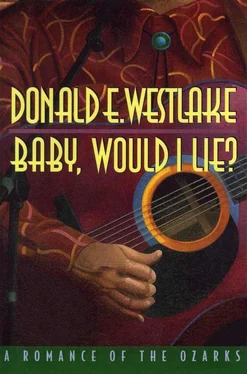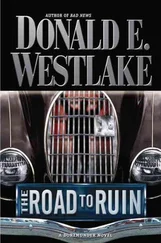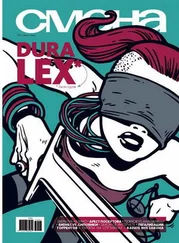“No, sir, I don’t believe I do. It’s been so many—”
“It’s your own song, Mr. Jones. But I take the point. You’ve written so many songs, it wouldn’t be reasonable to expect you to remember every word of every one of them.”
“No, sir, I’m saying—”
“And yet, Mr. Jones, you have a sufficient memory of that song, of its subject matter and terminology, let us say, that the photo I showed you recalled the song to mind, did it not?”
“No, sir.”
“Excuse me, Mr. Jones, but it was on seeing the photo that you—”
“You said that poor dead woman looked like a pizza. I thought that—”
“Mr. Jones, I asked you what she looked like.”
“—was a disgusting thing to say about a poor dead—”
“Mr. Jones, I would ask you to be responsive to the question.”
“—woman. I didn’t think she—”
“Your Honor, would you ask the witness to be responsive to my question?”
“—looked like a pizza. I thought she looked like a poor dead woman that was being made fun of when she couldn’t defend herself.”
Judge Quigley said, “Mr. Jones, have you quite finished your speech?”
“Your Honor,” Ray said, “somebody ought to defend poor Belle Hardwick from being made fun of when she can’t stand up for herself. If the state of Missouri won’t defend her, I guess it’s up to me.”
Judge Quigley pounded her gavel, outraged. “Mr. Jones!”
Now Warren was on his feet, and Jolie thought it about goddamn time. “Your Honor, I’ve been a patient man,” Warren said, with which Jolie could only concur, “but it seems to me we’ve all heard enough by now of the prosecutor’s bizarre ideas of what a dead body looks like. Perhaps some in this court have cast-iron stomachs, but I do not.”
Judge Quigley raised an eyebrow in Fred Heffner’s direction. “Counsel, is there a purpose to this line of questioning?”
“Your Honor, when the court hears the song to which Mr. Jones and I have been referring, the direction and intent of my examination will be made clear.”
Surprised, the judge said, “You aren’t going to ask the defendant to sing , are you?”
“Alas, no. Your Honor,” Fred Heffner said. “I am sorry to miss the opportunity to hear Ray Jones live, in person, but I can understand that he might be reluctant, under the circumstances, so we have brought into court a recording, which, with the court’s permission, we will now play.”
Buford Delray was already on his feet, holding up the cassette player, but Warren, who hadn’t sat down, said, “Objection, Your Honor. A song written eighteen years ago and not performed by the defendant for some eleven years can hardly be germane to a crime that occurred in July of this year.”
Good, Jolie thought. They wouldn’t let Ray make that point, so Warren made it for him.
Fred Heffner said, “Our purpose is to establish character and motive. The jury cannot have a clear idea of Ray Jones or of his attitudes — particularly when he’s being just a bit less gallant than he was a moment ago in this courtroom — unless we are permitted to hear him express himself in his own words.”
“I’m going to overrule your objection, Mr. Thurbridge,” Judge Quigley said. “A published article written by the defendant, or a book, if relevant to the subject matter at trial, would certainly be admissible. By that standard, a song written and performed by the defendant can be equally illuminative of attitudes and state of mind. You may proceed, Mr. Heffner.”
“Thank you. Your Honor.”
Heffner smiled at Buford Delray, who pressed PLAY on the little cassette player, then held it over his head as the music began.
It was an old song and an old recording, heavy on the electric guitar and the fake Hawaiian sound of that era. The machine was not at all high fidelity, but when Ray Jones started to sing, the words came through loud and clear.
Jolie, who knew the song — she knew all Ray’s songs — watched Sara Joslyn’s profile next to her to see how the song would go over with somebody hearing it for the first time.
Not well.
I’d like to tell you how I feel,
And what I think is my ideal.
Her face is like an angel’s is, but the devil’s in her eyes.
She dances like a panther, with lightning in her thighs.
She’s Ali Baba’s treasure room, all without a lock,
And she turns into a pizza at three o’clock.
She listens to my jokes like she thinks they’re all brand new.
She’s sunny all the time, and she never does get blue.
Wherever birds assemble, she is the pick of the flock.
And she turns into a pizza at three o’clock.
Come closer, girls, while I reveal
The shapely shape of my ideal.
She doesn’t know a word like no, it’s always yes;
And when she comes to call, she would never overdress.
Her door is always open, just every time I knock,
And she turns into a pizza at three o’clock.
It’s too bad nobody dropped a pin; you would have heard it. The click-click of the little machine as Buford Delray switched it off and the foom-squll of his trousers as he sat down were audible to every stunned ear in the room.
Jolie looked at the jury. They looked as though they had been condemned to death.
Fred Heffner milked the silence beautifully. Jolie watched him do it. She had to admire the slimy bastard. It wasn’t until Ray had actually opened his mouth and just started to make a sound — Don’t do it, Ray, she thought; nothing you can say will make anything better — that Heffner, as though letting Ray off the hook (though he wasn’t; he was fixing Ray more firmly than ever onto the hook), said quietly, somberly, “No further questions.”
“Perhaps it’s time to break for lunch,” Judge Quigley said, and when there was a gasp in the room, a sudden intake of many breaths as though the awful tension was about to be broken by even more awful laughter, she reared back, glared the assemblage into ongoing silence, and announced, “Court is adjourned until two P.M.”
Into the sudden rush of comments, shiftings, chair slidings, Warren called, “We reserve a right to redirect.”
“Of course!” Judge Quigley cried, and almost ran from the room.
Ray’s friends in the front row continued to sit there as the jury was led out, stumbling, like trauma cases off to rehab. “I don’t feel much like lunch,” Jolie said, and thought that was probably the first time in her life she’d ever made that statement.
“I may never eat again,” Sara said, which Jolie considered extreme.
On Sara’s other side, Cal leaned forward to tell the row of people, “You know, that was just a joke. Back then, when Ray wrote that, that was just a joke goin around. So he turned it into a song. Like ‘If It Ain’t Fried, It Ain’t Food.’ It was just a joke, that’s all. And he don’t even sing it anymore.”
“It isn’t a joke now,” Jolie said. “Every single member of that jury is thinking. Belle Hardwick was turned into a pizza at three o’clock.”
“Please,” Sara said.
A shadow fell across Jolie — another shadow. When she looked up, Leon Caccatorro was standing there with the strangest and most wrinkled smile Jolie had ever seen. “As it turns out,” he said, “the paperwork isn’t quite finished. We won’t be able to have our signing today, after all.”
Well, here’s a hell of a silver lining. “Back on your branch, buzzard,” Jolie said, and when Caccatorro faded away like Bela Lugosi, she looked around at all the long faces and suddenly, for no reason at all, felt better. “It isn’t over,” she announced, “until I sing. Let’s go eat, I’m starved.”
Читать дальше







